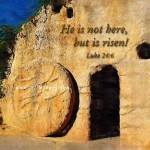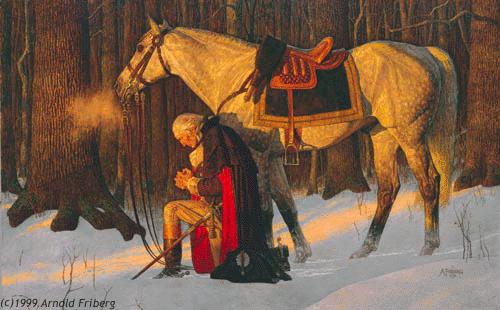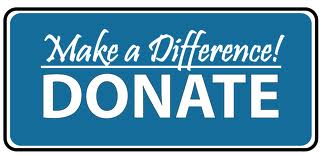Amb. Henry F. Cooper, Chairman . . . Lt. Gen. Daniel Graham, Founder
High Frontier . . Building Truly Effective Defenses . . Reagan’s Vision Lives
E-Mail Message 140420
He is Risen!
By Ambassador Henry F. Cooper
April 20, 2014
In this among the holiest of weeks for those committed to the Judeo-Christian faith, let us repent of our wayward ways and seek to renew that commitment, which is the basis for our Liberty. This faith gave America its Liberty in the first place, and we should pray it again becomes the basis for America’s future!
No matter how bad things become, we shall never be without hope.
This is the meaning of one of the most holy weeks for all who claim our Judeo-Christian heritage . . . as all Americans should, since that was the basis of our founding.
With Passover, Jews and Christians remember how God saved His people and delivered them from Egyptian bondage. With Easter, Christians remember that even death could not bind Yeshua, a Jewish teacher whose teachings and ministry two millennia ago so antagonized the Jewish hierarchy that they demanded that the Roman tyranny of the time crucify Him. Pilate obliged them . . . but that was not the end of the story.
We Christians believe that Yeshua was fulfilling prophesy in the Jewish scripture—what we refer to as the Old Testament—in coming, living, dying and rising to life eternal, ultimately to judge all of God’s creation. We believe He was—and is— the promised Messiah to all who believe; our Jewish brethren believe the Messiah is yet to come.
Americans owe their freedom to this common heritage—whether or not our current politically correct educational system teaches this indisputable truth. To whom else but the God of Israel did our founders refer in declaring independence from then British tyranny?
“We hold these truths to be self-evident, that all men are created equal, that they are endowed by their Creator with certain unalienable Rights, that among these are Life, Liberty and the pursuit of Happiness. — That to secure these rights, Governments are instituted among Men, deriving their just powers from the consent of the governed, — That whenever any Form of Government becomes destructive of these ends, it is the Right of the People to alter or to abolish it, and to institute new Government, laying its foundation on such principles and organizing its powers in such form, as to them shall seem most likely to effect their Safety and Happiness.”
The Declaration of Independence
July 4, 1776
Then, the churches of the thirteen colonies stood firmly behind those who signed in their stead and pledged their support of the Declaration of Independence: “With a firm reliance on the protection of Divine Providence, we mutually pledge to each other our Lives, our Fortunes, and our sacred Honor.” Indeed that was the cost for many of the signers in the subsequent years of the American Revolution.
No more famous a painting of the era exists than that of George Washington at Valley Forge kneeling in prayer for his rag-tag continental army during the Winter of 1777-8, which many consider the turning point of the Revolutionary War. His troops were desperately against the ropes — bloody, beaten, battle-weary — and ready to quit. Even Washington conceded, “If the army does not get help soon, in all likelihood it will disband.” He sought Providential help, as well as from the Continental Congress, and it came as Washington continued to pray throughout the bitter battles up to and including the surprise attack on Yorktown that brought an end to the war on October 19, 1781.
The war won, the 13 states then flailed and faltered under the Articles of Confederation for years in an effort to deal with the political issues of the time, until a constitutional convention was called in Philadelphia—where little progress toward agreement was made before Benjamin Franklin most notably on July 28, 1787, after 5 weeks of deadlock, called for that convention to ask for Providential help:
“I have lived, Sir, a long time, and the longer I live, the more convincing proofs I see of this truth—that God Governs in the affairs of men. And if a sparrow cannot fall to the ground without his notice, is it probable that an empire can rise without his aid?” . . . Benjamin Franklin—Philadelphia, June 28, 1787
Thus was born the tradition, honored to this day, to begin each day’s session of Congress with prayer. (Notably, our children can no longer begin their school day with prayer—as was my experience growing up.) And of course, within due course at the time was born the U.S. Constitution, subsequently ratified by the 13 colonies, which identified in its purpose an echo of the purpose of our other founding document, the Declaration of Independence. The first words of its preamble states:
“We the People of the United States, in Order to form a more perfect Union, establish Justice, insure domestic Tranquility, provide for the common defence, promote the general Welfare, and secure the Blessings of Liberty to ourselves and our Posterity, do ordain and establish this Constitution for the United States of America.”
And there should be no doubt that our founders based their founding documents on Christion beliefs and practice as made explicitly clear in each of the subsequent state Constitutions. They might have followed different theological details, sometimes strongly held—with tolerance for differing views as mandated by the First Amendment of the Bill of Rights, but they were profoundly Christian in the fundamentals. One need only to read Alexis de Tocqueville’s Democracy in America to see this was still so a half century after our Constitution was ratified. (A half century doesn’t seem so long to me now as I have witnessed up close how America has lost its way since the 1950s.)
After nine months of traveling the United States, de Tocqueville wrote in 1835: “Upon my arrival in the United States the religious aspect of the country was the first thing that struck my attention… In France I had almost always seen the spirit of religion and the spirit of freedom marching in opposite directions. But in America I found they were intimately united and that they reigned in common over the same country…” Among many other notable quotes, he also is also attributed to have written or said:
- “There is no country in the whole world where the Christian religion retains a greater influence over the souls of men than in America, and there can be no greater proof of its utility and of its conformity to human nature than that its influence is powerfully felt over the most enlightened and free nation of the earth.”
- “The Americans combine the notions of Christianity and of liberty so intimately in their minds, that it is impossible to make them conceive the one without the other… They brought with them into the New World a form of Christianity which I cannot better describe than by styling it a democratic and republican religion.”
- “America is great because she is good. If America ceases to be good, America will cease to be great.”
- “The American Republic will endure until the day Congress discovers that it can bribe the public with the public’s money.”
Ah, there’s the rub! My, how things have changed in the past century or so!
Today, those holding Judeo-Christian beliefs and who consider liberty to be as defined by our founders are considered to be radicals—apparently even terrorists by the Senate Majority Leader. Furthermore, Christians are among the most persecuted of all people around the world, because of their beliefs.
And most of all, I fear we are losing our birthright, in keeping with the last two de Tocqueville quotes above. I fear that the most troubling modern tyranny is what our own government has become, and the ignorance of our citizens who don’t understand what made our nation great in the first place. Our schools have failed to teach our founding principles—and as my favorite President, Ronald Reagan, once said,
“Freedom is never more than one generation away from extinction. We didn’t pass it on to our children in the bloodstream. It must be fought for, protected, and handed on for them to do the same, or one day we will spend our sunset years telling our children and our children’s children what it was once like in the United States where men were free.”
Ronald Reagan
While I believe in the meaning of Easter as applied to individual salvation, I also take its meaning to represent an extended truth. That is: In apparent defeat and even in the midst of the greatest evil, there can be the seeds of redemption and hope. To quote from the Old Testament, from 2 Chronicles 7:14,
”If my people, which are called by my name, shall humble themselves, and pray, and seek my face, and turn from their wicked ways; then will I hear from heaven, and will forgive their sin, and will heal their land.”
May it be so. The God who delivered his chosen people, Israel; His son, Yeshua; and our founders, surely can deliver us from the existential threats we face.
He is risen, indeed!
What can you do?
Join us in praying for our nation, and for a rebirth of the freedom sought, achieved and passed to us by those who came before us.
Get involved— Help us to spread our message to the grass roots and to encourage all “powers that be” to provide for the common defense as they are sworn to do.
Begin by passing this message to your friends and suggest they visit our webpage, www.highfrontier.org for more information. Also, please encourage your sphere of influence to sign up for our weekly e-newsletter!
Please click here to read Past Weekly Updates!
Please click here to read past Flash Messages!
Please help High Frontier continue this important and timely work!
Be sure to follow us on our Social Sites!
If you found this letter via our Social Sites, and you would like to subscribe, click below!







